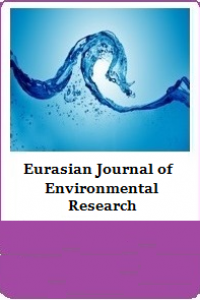Öz
The rural settlement area of Niğde Çukurkuyu was
chosen as a model location in this study to support rural development and
sustainability. In order to identify the feasibility of the technology; the
population, energy consumption, available potential raw materials (household
and agricultural waste amount depending on years) of the settlement have been
determined and analyzed and an economic feasibility report has been prepared.
According to the obtained data from the region, 30% of the agricultural land is
used and annual average of generated agricultural waste is 32200 tons.
Depending on the season, averagely 1080 tons of domestic waste potential is
available at the settlement. According to these data, estimated installed power
of the gasification/plasma gasification plant which use of household waste can
be 3 MW. The planting of energy plants such as Switchgrass and Sweet sorghum
into unused agricultural land can increase the installed power of the plant to
up to 18.8 MW. 1.1% of the energy produced by the process can meet the
electricity needs of a 1000 selected rural residential area. Plus, entire
heating requirement of the site can be met by 35% of the energy of process.
With the remaining energy generated can be used by the grid, so the national
economy will be contributed. Finally, it is obviously that a significant energy
potential is available for rural development and sustainable energy production.
Anahtar Kelimeler
Climate Change Mitigation Energy Plants Renewable Energy Rural Life
Ayrıntılar
| Konular | Çevre Bilimleri, Çevre Mühendisliği |
|---|---|
| Bölüm | Articles |
| Yazarlar | |
| Yayımlanma Tarihi | 1 Aralık 2017 |
| Gönderilme Tarihi | 13 Temmuz 2017 |
| Yayımlandığı Sayı | Yıl 2017 Cilt: 1 Sayı: 2 |
Kaynak Göster
Creative Commons License
Attribution-NonCommercial-ShareAlike 4.0 International (CC BY-NC-SA 4.0)

Creative Commons Attribution-NonCommercial-ShareAlike (CC BY-NC-SA) License lets others remix, tweak, and build upon the work non-commercially, as long as they credit the author(s) and license their new creations under the identical terms.


